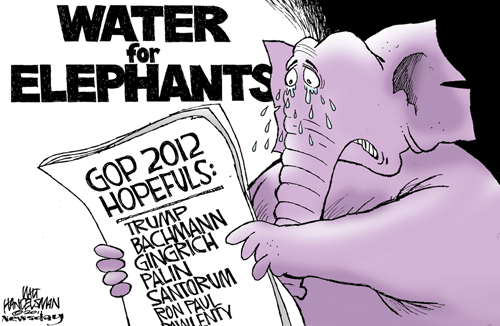The fact of the matter is that most, if not all, of the mega-banks are insolvent. The paper they base their balance sheets on is suitible mostly for lining litter boxes and wrapping fish and ultimately, when the write downs come, they’re going to shoulder the brunt of it because now that they own over 50% of all assets there’s simply no place else they can steal from.
Yesterday I mentioned the continuing decline in real estate, more from the Wall Street Journal today-
Home values fell 3% in the first quarter and 1.1% in March, according to Zillow, which says prices have fallen 57 consecutive months. CoreLogic (CLGX) this week reported that home prices have fallen for eight months in a row.
The Realtors’ trade group, which measures resales using median prices where half sell for more and half sell for less, says existing-home prices rose in 34 out of 153 metropolitan statistical areas in the first quarter compared to a year ago. The data also shows four double-digit increases – including Buffalo, N.Y., and Burlington, Vt. – and 118 price declines.
…
NAR also makes it clear that distressed-home sales, which typically command a discount around 20%, continue weighing on prices. In the first quarter, the median existing home price came in at $158,700 nationwide, down 4.6% from a year earlier. Distressed sales made up 39% of the first-quarter’s sales, up from 36% a year ago.
…
This has some economists pushing back their estimates of when the battered market will see prices strike the long-awaited bottom and begin recovery.
Stan Humphries, Zillow’s chief economist, now believes prices won’t hit bottom before next year and expects they will fall by another 7% to 9%.
Paul Dales, a senior U.S. economist with Capital Economics, said prices could fall by as much as 10%, down from his previous forecasts of around 5%.
Others are even more pessimistic. “The real-estate market is dead money until at least 2014,” says Michael Pento, a senior economist with Euro Pacific Capital. “There is just too much supply.”
Banks lied about the value of these mortgages in the prospectuses for the securities they re-sold to investors, exposing them to Trillions of Dollars of Civil Liability and Criminal Fraud charges.
Deutsche Bank Accused Of Massive Mortgage Fraud, Sued for $1 Billion By U.S. Government
Shahien Nasiripour, The Huffington Post
05/ 3/11 04:42 PM ET
The Justice Department is seeking damages three times the amount HUD has already shelled out for defaulted mortgages with allegedly fraudulently-obtained government insurance, plus additional penalties for each mortgage that broke federal rules.
While private investors have thus far faced a long, slow war battling lenders and connected Wall Street firms to buy back toxic mortgages investors claim were sold to them fraudulently, the government’s suit is fairly straightforward. As part of the FHA program MortgageIT participated in, lenders are required to annually certify that they check basic records like borrowers’ incomes, credit history and employment record. The lenders also are required to review loans that quickly default to guard against sloppy lending practices, and act in the government’s best interests because taxpayers are bearing the risks for potentially poor loans.
…
“These companies repeatedly and brazenly breached the public trust,” said Preet Bharara, the U.S. Attorney in Manhattan. “This lawsuit sends them — and other lenders — the message that they cannot get away with lies and recklessness. They cannot casually assign the prospect of being caught to the cost of doing business.”
Claiming Fraud in A.I.G. Bailout, Whistle-Blower Lawsuit Names 3 Companies
By MARY WILLIAMS WALSH, The New York Times
Published: May 4, 2011
The lawsuit, filed by a pair of veteran political activists from the La Jolla area of San Diego, asserts that A.I.G. and two large banks engaged in a variety of fraudulent and speculative transactions, running up losses well into the billions of dollars. Then the three institutions persuaded the Federal Reserve Bank of New York to bail them out by giving A.I.G. two rescue loans, which were used to unwind hundreds of failed trades.
…
“To cover losses of those engaged in fraudulent financial transactions is an authority not yet given to the Fed board,” said the plaintiffs, Derek and Nancy Casady, in their complaint, filed in Federal District Court for the Southern District of California.
The lawsuit names A.I.G., Goldman Sachs and Deutsche Bank as defendants, but not the Fed.
Will "False Claims" Lawsuit Against AIG, Goldman, Deutsche, BofA, SocGen on Fed Funding Lead to New Round of Embarrassing Revelations?
Yves Smith, Naked Capitalism
Thursday, May 5, 2011
The case focuses on allegedly fraudulent representations made by AIG and the various major dealers in the course of obtaining the financing. But the part I find interesting is the Fed’s evident non-compliance with the requirements of this section, particularly the fact that the central bank lent 100% against the face value of the AIG CDOs, between taking out the CDS and then lending the bailout vehicle Maiden Lane III the funds to buy the CDOs. Interestingly, the SIGTARP investigation missed this issue. If this was at all considered, the argument may have been that the AIG equity in MLIII was tantamount to a discount, but the lawsuit argues that notion is bogus. Since AIG was broke, any money for the AIG equity came from the outside (in fairness, it’s a bit more complex, thanks to reserves set aside over the collateral dispute).
The suit argues that the initial loan was made under false premises, since the loan was secured by all assets of AIG, when the assets were already pledged (all the regulated subs have prior claims on them, both to creditors and policy-holders). The understanding, as depicted in various less-than-official accounts, like the Andrew Ross Sorkin Too Big Too Fail, is that the loans were secured by the equity of the subs. Fine in theory, but in practice, that isn’t what the loan document says, and as important (although not argued in the case) is the amount of the loan was based on what AIG needed to stay afloat, not on any effort to find a market value of the assets pledged and discount that.
In addition, the notion that it was acceptable to lend against stock appears to be based on the discount schedule that the Fed posts and revises from time to time as to the types of collateral that are accepted for lending and the various discount rates established for them. But note that schedule is for depositary institutions. The Fed acted as if it could simply lend against the same assets held by non-depositaries, but the language of the germane section does not appear to support that idea.
And then there are Portugal, Ireland, Italy, Greece, and Spain.
Investors count cost to banks of Greek default
By Tracy Alloway, Megan Murphy and David Oakley, Financial Times
Published: May 10 2011 19:17
Financial markets are pricing in the once unthinkable. Worried by the possibility that Greece could restructure its debt, investors are gauging the likely impact on European banks that hold its bonds. Some, it has emerged, could be exposed to billions of euros in losses
The question of who would suffer in the event of a writedown being imposed on Greek bondholders has acquired extra urgency as analysts digest different scenarios should Greece be unable to return to the bond markets next year.
…
A 50 per cent writedown, or haircut, on the value of Greek bonds, which some commentators believe is a possibility, would cost BNP €1.7bn.
At Dexia, the Franco-Belgian bank, its €3.5bn banking exposure represents a sizeable 39 per cent of the bank’s tangible net asset value, Morgan Stanley estimates. A 50 per cent haircut would lead to the group taking a €1.3bn hit.
Commerzbank of Germany and Société Générale in France are also exposed, both holding about €2bn-€3bn of Greek sovereign debt. In total, non-Greek banks hold 11 per cent of outstanding Greek debt, UBS says, the International Monetary Fund and European nations that took part in last year’s Greek bail-out having similar exposure.
…
The European Central Bank is estimated to hold 20 per cent through direct purchases of Greek bonds, making it Greece’s second-biggest investor. Widening the central bank’s exposure to take account of its financial liquidity operations paints a starker picture.
JPMorgan analysts estimate that including lending by the ECB to Greek banks raises its notional exposure to nearly €200bn. Using that figure, they calculate the ECB can withstand a haircut of up to 30 per cent before taking losses. “A hypothetical Greek debt restructuring exceeding that haircut would be damaging especially if Ireland followed suit,” JPMorgan says.
…
For Greek banks, a 50 per cent haircut in a hard restructuring would lead to about €25bn in losses, JPMorgan says, leaving only €4bn of equity to cushion the Hellenic banking system.
It is only a question of when, and not if, there will be another global financial crisis and another leg down in the Greatest Depression. My bet is that it will come just in time to completely doom Obama’s re-election prospects.
For which he has no one to blame but himself.





Recent Comments